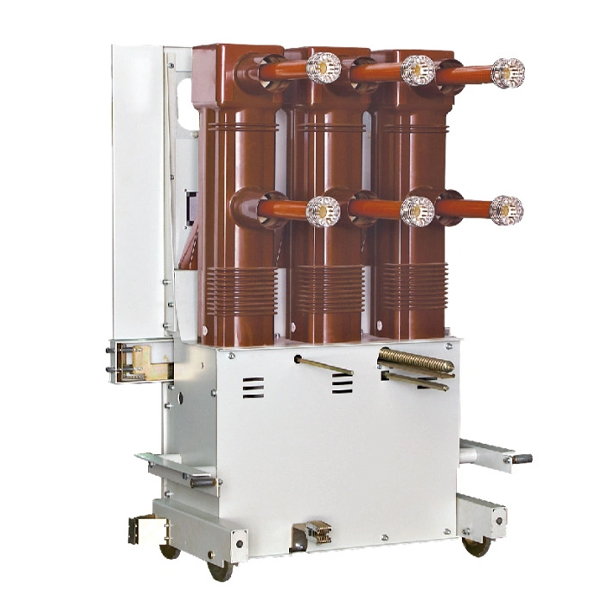What Should You Know About Choosing the Right Indoor Circuit Breaker?
2025-08-29
When it comes to electrical safety and efficiency in residential, commercial, and industrial settings, the importance of a reliable indoor circuit breaker cannot be overstated. But with so many options available, how do you determine which one is best for your needs? As an industry expert with over two decades of experience, I'll guide you through the critical aspects of selecting, installing, and maintaining high-performance indoor circuit breakers. We'll dive deep into product specifications, highlight key features using structured lists and tables, and answer some of the most frequently asked questions to help you make an informed decision.
Why Are Indoor Circuit Breakers Essential?
Indoor circuit breakers are fundamental components designed to protect electrical circuits from damage caused by overloads or short circuits. They automatically interrupt current flow when a fault is detected, preventing potential hazards like electrical fires and equipment damage. Unlike outdoor breakers, indoor variants are specifically built to operate in controlled environments, free from extreme weather conditions, but they must still meet rigorous safety and performance standards.
At Shanghai FATO Group Co., Ltd., we've engineered our indoor circuit breakers to combine cutting-edge technology with robust construction, ensuring longevity and reliability. Whether you're an electrician, a project manager, or a homeowner, understanding the technical details will empower you to choose a product that guarantees both safety and value.
Key Parameters to Consider When Selecting an Indoor Circuit Breaker
To ensure you select the right breaker for your application, pay close attention to the following parameters:
-
Rated Current
This indicates the maximum current the breaker can handle continuously without tripping. Common values range from 15A to 100A for standard applications. -
Breaking Capacity
Also known as interrupt rating, this defines the maximum fault current the breaker can safely interrupt without damage. Higher breaking capacities are critical for high-risk environments. -
Number of Poles
Single-pole breakers are used for 120V circuits, while double-pole breakers are for 240V circuits. Three-pole and four-pole options are available for industrial three-phase systems. -
Trip Characteristics
Determined by the breaker's response curve (e.g., Type B, C, or D), this parameter defines its sensitivity to overcurrents. For example, Type C is common for commercial loads with moderate inrush currents. -
Voltage Rating
Ensure the breaker's voltage rating matches your electrical system's requirements (e.g., 120/240V for residential, 480V for industrial). -
Standards and Certifications
Look for products compliant with international standards such as IEC 60898, UL 489, or CSA C22.2.
Detailed Product Specifications: At a Glance
To help you compare options efficiently, here's a detailed table showcasing the key specifications of our premium indoor circuit breaker series:
| Model Series | Rated Current (A) | Breaking Capacity (kA) | Poles | Trip Curve | Voltage Rating (V) | Certifications |
|---|---|---|---|---|---|---|
| FATO-ICB-S15 | 15 | 6 | 1P | Type B | 120/240 | UL 489, IEC 60898 |
| FATO-ICB-D32 | 32 | 10 | 2P | Type C | 240 | UL 489, IEC 60898 |
| FATO-ICB-T60 | 60 | 15 | 3P | Type D | 480 | UL 489, IEC 60947 |
| FATO-ICB-Q100 | 100 | 25 | 4P | Type C | 600 | UL 489, IEC 60947 |
These products are engineered for durability and precision, making them ideal for a wide range of applications—from household electrical panels to industrial control systems.
Advantages of Choosing Our Indoor Circuit Breakers
-
Enhanced Safety: Advanced thermal-magnetic trip mechanisms ensure rapid response to overloads and short circuits.
-
Durability: Constructed with high-quality materials, our breakers offer exceptional mechanical and electrical longevity.
-
Ease of Installation: Designed for compatibility with standard mounting rails and connections, reducing installation time.
-
Eco-Friendly: Compliant with RoHS directives, containing no hazardous substances.
-
Cost-Efficiency: Competitive pricing without compromising on performance or safety.
Indoor Circuit Breaker FAQ Common Questions
Q1: How often should I replace an indoor circuit breaker?
A1: Indoor circuit breakers are built for long-term use and typically do not require replacement unless they show signs of wear, such as frequent tripping, physical damage, or inability to reset. However, it's advisable to have a professional electrician inspect your electrical system every 10-15 years to ensure all components, including breakers, are functioning correctly.
Q2: Can I use an indoor circuit breaker in an outdoor panel?
A2: No, indoor circuit breakers are not designed to withstand environmental factors like moisture, temperature fluctuations, or UV exposure. Using them outdoors could lead to premature failure or safety hazards. Always choose breakers specifically rated for outdoor use if the application requires it.
Q3: What does the trip curve (Type B, C, D) mean for an indoor circuit breaker?
A3: The trip curve indicates the breaker's response time to overcurrents. Type B breakers are designed for residential applications with low inrush currents (e.g., lighting circuits). Type C is suited for commercial loads with moderate inrush currents (e.g., motors or transformers). Type D is used for industrial applications with high inrush currents (e.g., heavy machinery). Selecting the correct curve ensures optimal protection without nuisance tripping.
Make the Smart Choice for Electrical Safety
Selecting the right indoor circuit breaker is crucial for protecting your electrical infrastructure and ensuring operational continuity. With detailed parameters, certifications, and performance features outlined above, you can confidently evaluate products based on your specific requirements.
At Shanghai FATO Group Co., Ltd., we take pride in delivering top-tier electrical components that meet global standards. Our indoor circuit breakers are trusted by professionals worldwide for their reliability, innovation, and affordability.
For more information or to discuss your project needs, don't hesitate to contact our team of experts. Reach out to Shanghai FATO Group Co., Ltd. today—where safety meets excellence!






